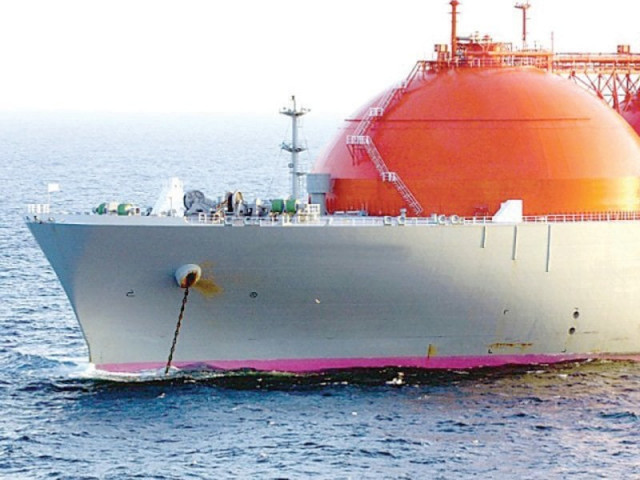Free trade: US places no curbs on LNG export to Pakistan
American private firms need licence for gas sales to foreign countries.

While praising Pakistan for its efforts to set up a liquefied natural gas (LNG) import terminal, the US has insisted that it places no bar on any country that is not part of the Free Trade Agreement (FTA) with Washington including Pakistan, on inking an LNG supply deal with US private enterprises.
“Establishing an LNG import terminal and a re-gasification facility is the first step for Pakistan before negotiating a supply contract. We fully support Islamabad’s efforts to step up natural gas supply through LNG imports,” an official of the US embassy told The Express Tribune.

LNG import as well as Turkmenistan, Afghanistan, Pakistan and India (TAPI) gas pipeline were viable options for Pakistan in an effort to tackle energy shortages, increase gas supplies and help integrate the region, he said.
However, all natural gas and LNG production in the US is the endeavour of private enterprises and the US government does not have any agreement nor is it negotiating with any country for LNG export.
“For LNG supply to any foreign country, a company must get licence from the Department of Energy,” the official said. “Licences for LNG export to nations that have a certain type of FTA with the US are deemed to be consistent with public interest and are granted more or less automatically.”
At present, the US has trade accords with 20 countries, but most of these are not importing LNG in large quantities.
According to US embassy officials, the Department of Energy, while examining applications for LNG export to non-FTA countries, must make a determination that the licence will not be detrimental to public interest and it takes into account the impact on US markets and the environment as well as energy security.
The department does not give the licence for export to a specific country, like Pakistan. To date, licences have been approved for seven companies for shipping a total of 9.27 billion cubic feet per day (bcfd) to non-FTA countries. Several other applications for licences are pending before the department.
Officials said applications had also been submitted to the US Federal Energy Regulatory Commission, seeking the go-ahead for constructing LNG terminals, but so far only Cheniere Energy had got the licence.
When the company completes work on its terminal at Sabine Pass in 2017, it will be capable of exporting 2.7 bcfd.
They stressed that it was too early to say if prices would come down after US companies started exporting LNG, adding the demand and supply situation would determine the price.
Pakistan should also enhance domestic gas production by raising wellhead price as an incentive for exploration companies, they suggested while pointing to the transmission and distribution losses of gas utilities, terming it a big issue. A 10% loss means that 400 million cubic feet of gas per day is going to waste.
In terms of LNG, this wastage would cause a loss of $1.3 billion per year, so the government should curb losses before injecting LNG into the system, they said.
Appreciating the World Bank for working on a loss-reduction project, the officials stressed that power plants should improve recovery of bills and losses should be controlled to bring efficiency.
Published in The Express Tribune, June 26th, 2014.
Like Business on Facebook, follow @TribuneBiz on Twitter to stay informed and join in the conversation.



















COMMENTS
Comments are moderated and generally will be posted if they are on-topic and not abusive.
For more information, please see our Comments FAQ